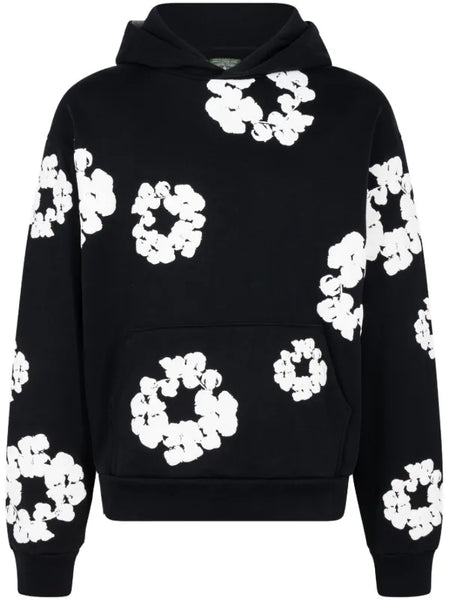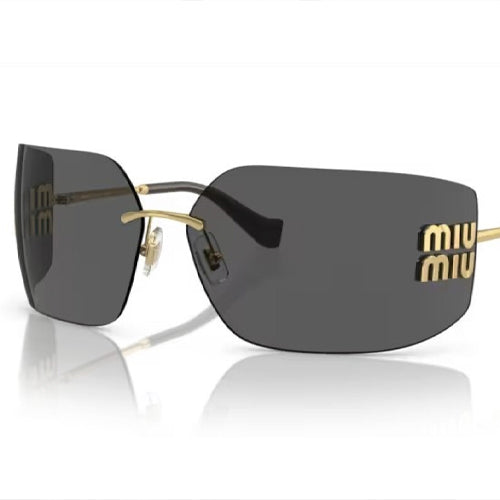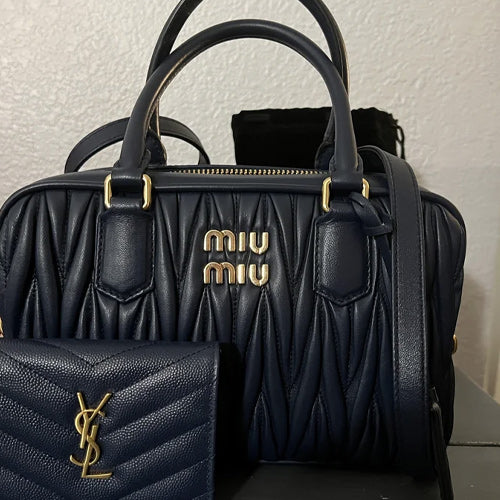How to Sell Replicas Legally: Is It Worth The Risk?
Last Updated on:
With the development of e-commerce, buying replicas of designer products has become widespread. The customers want to enjoy the same aesthetics but not the premium craftsmanship and quality that comes with a high price tag.
Even though "replica" and "counterfeit" are often used interchangeably, they have different meanings. The difference lies in the intention, legality, and transparency.
The replica market growth is seen as a lucrative opportunity for business. However, retailers need to do it properly to avoid fines and lawsuits.
How do you sell replicas legally? This article explains the crucial differences between replicas and counterfeits, legal aspects, ethics, and more.
Table of Contents
[ open ]What Are Replicas? A Breakdown

A replica is an imitation of a genuine product closely resembling the original in terms of design, material, and functionality. The replica borrows the characteristics of a popular product but doesn't copy the exact design.
Is it illegal to sell replica shoes? Selling replicas is legal only when the seller is transparent about the product. They should clarify that a specific designer item inspires the product, and there should be no intention to deceive the customer.
When it comes to design, the replica closely resembles the original. It borrows the distinct characteristics of a product but does not copy the trademark logo.
The manufacturer shouldn't infringe on trademarks and copyrights for a replica to be legitimate. The replica is within the law and respects the original property rights of the brand. It is important to note that replicas vary in quality and are positioned as affordable alternatives to the original.
We can take the Zara bag replica as an example. The brand crafted a bag inspired by Chloe's popular tote bag but never claimed it was the original.
Zara copied the tote bag design, high contrasting color scheme, removable crossbody bag, and top handle. However, their product doesn't have the Chloe branding. The customers saved $700 by choosing the Zara bag with the same aesthetic.
Replicas vs. Counterfeits: The Key Differences
Even though a replica and a counterfeit might sound similar, they are two different terms. While they have similarities, they have distinguishable differences.
In replicas and counterfeits, the intention is to create a product that resembles the original. The overall design, colors, and materials are copied from the original.
However, the difference is how much the product resembles the original. Replicas copy some design aspects but still have differences to avoid deceiving the customer.
On the other hand, the counterfeit is an identical copy of the original. Counterfeiters go a step forward and copy the same style and design details. These products also copy the trademark symbols and packaging, which isn't the case with replicas.
The intention is another significant difference. With replicas, the customer knows the product isn't the original.
With counterfeits, the intention is to copy the product's details, including the trademark logo and packaging, to trick the customer and take advantage of the brand's reputation. They are sold as genuine products to monetize a designer product's popularity.
Quality is essential when making a difference between replicas and counterfeits. While replicas vary in quality, they don't compromise on safety or performance.
A replica aims to provide an affordable alternative to the original. The goal is to cater to those who can't pay the full price of a designer product but want to appreciate the design.
However, counterfeiters keep the costs as low as possible, making their products of poor quality.
Also Read: How to Authenticate Designer Clothes
Legal Issues: Can You Sell Replicas Without Breaking the Law?

Is it illegal to sell replicas? This is a widespread question that worries business owners. Selling replicas is legal if you do it correctly, and we explain why.
As previously mentioned, replicas closely resemble the original product. However, they don't share the exact design details. Manufacturers borrow some design details and craft a product similar to the original.
To sell replicas legally, they have to be marketed as such and notclaim to be the original to deceive the customer. Sellers should be transparent about selling products inspired by the original. Also, the replicas shouldn't infringe any copyrights and patents.
On the contrary, counterfeit products have the intention of deceiving the customer. They infringe the trademarks and copyrights, making them illegal.
Large reselling sites have their own rules. The eBay counterfeit item policy clearly states that replica products aren't allowed.
Also Read: Is It Illegal To Buy Counterfeit Goods?
Intellectual Property Laws
One of the biggest issues with selling replicas is potentially infringing intellectual property rights or trademarks. The name, logo, and other symbols are a brand's trademarks.
How do you sell replicas legally? The only way to do this is to ensure your products don't infringe the intellectual property rights and trademarks. It is illegal to copy the same design, logo, name, or symbol.
On the other hand, counterfeit products are unauthorized replicas. They infringe upon intellectual property rights, which can result in legal action against them.
Copyright law protects the original work of individual authors, such as movies, music, and books. Selling replicas of copyrighted work is illegal, even if they are clearly stated as replicas.
For businesses to sell replicas of copyrighted work, they need to get permission. They need to pay royalties to the copyright holder to obtain the permission.
Another instance of illegal replicas is selling replicas of patented products. The patent law protects the inventions, so replicas of patented products are considered illegal even if they are transparently marketed as such.
Before selling replicas, business owners must ensure the product does not infringe on patents. Working with a dedicated patent lawyer and researching are excellent ways to discover.
Counterfeit Goods Trafficking Act
The counterfeiting is covered in the 18 U.S. Code § 2320. Using counterfeit ark is a felony and can result in a fine of up to $2,000,000 or a 10-year sentence.
If the counterfeiter profited from selling fake goods, they are liable for covering the market value of the goods to the trademark holder. Also, they are accountable for covering the product's value from which they were likely to profit.
However, the felony does not only lie in profiting from a brand's reputation. As mentioned in this article, counterfeit goods are often low-quality and can compromise safety.
If the counterfeiters caused damage or body injury with their products, the fine is $5 million and 20 20-year prison sentence. If they knowingly caused death, they could face a $5 million fine and a lifetime prison sentence.
Each country has a distinct law for counterfeit goods. Make sure you are familiar with it before selling replicas.
Licensing and Permissions

Making replicas of items that are public domain isn't illegal. However, things change when there are copyright laws. Making replicas of items under copyright laws isn't allowed.
Securing a license and permission is one of the ways to sell replicas legally. Establishing a license agreement grants the legal right to sell the product. The agreement clearly outlines the specific conditions under which your business can sell replicas.
The granted permissions, restrictions, and obligations are indicated within the contract. Make sure to work with a professional specializing in intellectual property law to avoid problems.
Also Read: How to Grow Your Reselling Business
Legal Risks & Financial Consequences of Selling Replicas
The line between selling replicas and counterfeits is very thin. Sellers must be cautious, as there are risks and consequences associated with selling replicas.
The business selling replicas could face legal issues. Claiming that the product is authentic and marketing it results in criminal prosecution.
On the other hand, not marketing your products as replicas can affect your business reputation. Consumers can leave negative reviews on your website, negatively impacting your brand.
Not following the rules can also result in a decrease in profitability. Customers can refuse to pay or ask for a refund for the products.
Is Reselling Reps Illegal: Ethics Points
Many consumers and businesses ask themselves whether selling replicas legally is ethical. We should consider a few aspects of this question to understand the topic.
Clear communication and transparency are two of the ethical aspects of selling replicas. The product should be marketed as such so customers are aware that they aren't buying the genuine thing. With this, they can buy a product that matches their values and preferences.
Luxury brands invest millions in research, craftsmanship, and innovation. Selling replicas—even if legal—devalues their work and erodes the exclusivity they offer. Ethical dealers that sell replicas respect intellectual property rights and obtain proper licensing and permissions. They appreciate the efforts of the original designers.
Ethical replica sales include fair market competition. The product respects the ethical bonds and is appropriately positioned on the market. On the other hand, counterfeit goods harm the original product creators.
Legal Alternatives to Selling Replicas
There are a few alternatives when businesses find it challenging to sell replicas and find a legal route. Licensing agreements, collaborations and partnerships are some options.
Licensing Agreement
A license agreement is a contract between two parties that allows businesses to sell replicas with permission. This contract ensures the replica follows the laws and creates a mutually beneficial relationship.
Collaboration and Partnership
Collaborating with a brand is an excellent way to create a product that combines the advantages of two businesses. It provides a legal base for sharing creativity while keeping the brand's authenticity.
Should You Sell Replicas? Weighing the Pros and Cons
Business owners should weigh the risks associated with selling replicas and the potential benefits to make a decision. When replicas are legal, they offer an excellent opportunity to cater to a market that seeks affordable alternatives.
But passing the line and selling goods that are classified as counterfeit can outweigh the short-term gains. Sellers should clearly understand the differences between replicas and counterfeits.
Understanding the legal landscape, working within ethical principles, and being transparent with marketing your products help set up a business model that complies with the laws.
- Avoid Using Brand Logos, Trademarks, or Names – If your product includes a designer logo (e.g., Chanel, Gucci, Nike), it’s counterfeit, not a legal replica.
- Check Local and International Laws – Some countries strictly prohibit replicas, even if they don’t infringe trademarks.
- Use Platforms That Allow Replicas – Some e-commerce sites, like eBay and Amazon, have strict policies against selling replicas, so be mindful of where you list your products.
- Consider Licensing Agreements – Some brands offer legal licensing options for businesses that want to sell similar designs.
- Be Transparent With Customers – Always disclose that the item is not an authentic designer piece.
If you bought a fashion product and are unsure whether it's real or fake, check out our designer authentication service.

















